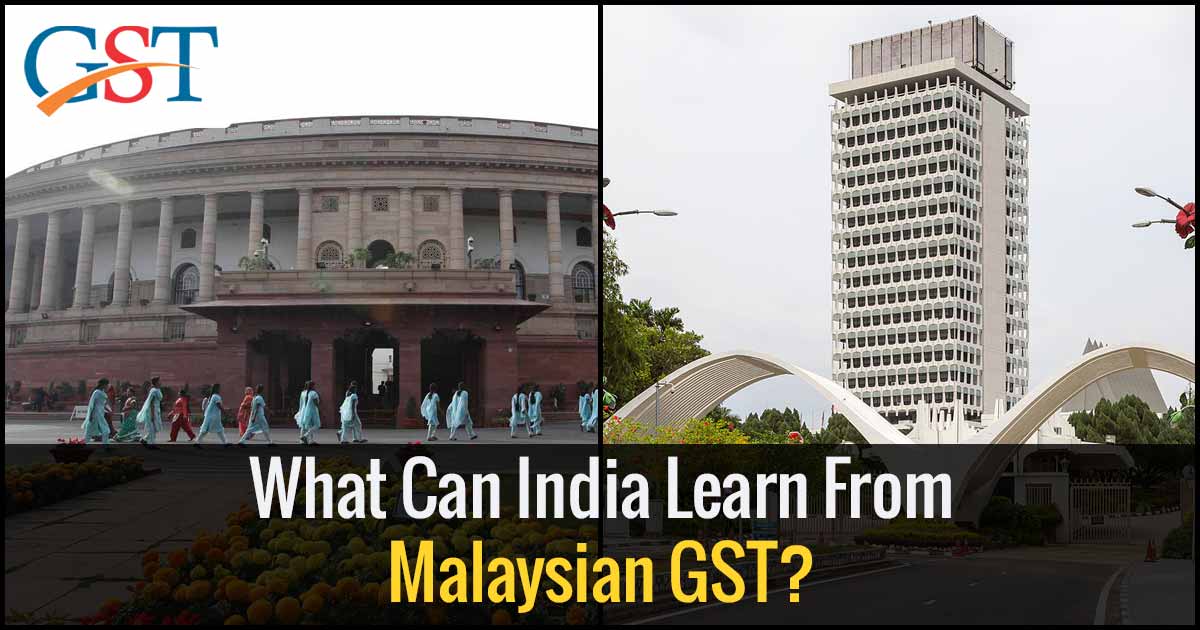Malaysia is thinking to discard the goods and services tax (GST) in the country. It has been three years of GST roll out in Malaysia and it is advisable for India to move deliberately in the upcoming years as India also needs to stabilize the new indirect tax regime rolled out in July 2017.
However, the construction of GST in Malaysia may not affect India directly, experts advised the government to consider the Malaysian experience and take decision wisely with necessary precautions and bring additional reforms in order to extend GST in a staged manner.
The upcoming events in Malaysia are quite remarkable and interesting as well. Folding the GST system which has only completed three years there would be further defying for India and other businesses too.
Pratik Jain, partner, PwC India said in this regard, “It might be worthwhile for the Government of India to closely study the Malaysian experience and take necessary precautions over the next few years.”
He, further, mentioned that he sees nothing impacting the Indian GST due to GST back move of Malaysian. As India has years of political consensus experience which made the constitutional amendment very strong in the duration.
He added, “The Indian GST is now stabilizing, the tax base is expanding, inflation is largely under control, and there has hardly been any resistance from businesses.”
Malaysia declared that it would discard the 6% GST rate as the newly elected Prime Minister Mahathir Bin Mohamad promised to do when he would win the elections. Starting from June 1, the GST rates will be zero.
“It would be good if a phase-wise plan on the additional reform requirements such as the expansion of GST into real estate, electricity, petroleum products, etc and changes such as reverse charge, tax collection at source are announced.” Mentioned M S Mani, partner, Deloitte.
He explained that it would render a roadmap for businesses to organize further and make sure all stakeholders that these moves were taken in order to assure reform measure.
The GST was implemented in the country from July last year and superseded the indirect taxes of Centre and states in India, making a consolidated and unbroken chain of ITC that restricted cascading effects of taxes.
But the rollout proved to be much complicated than predicted for the industry, with five various GST rate slabs and a complicated return filing structure of a changeable GST network which is an information technology coverage of the GST.
Before India, Malaysia is the last country to have introduced the Goods and Services Tax, India can take it as a warning to policymakers, said a tax expert.
The expert further said, “Expansion of the GST may take longer than expected as the government will tread with caution and ensure it takes the industry along in the reform.”
Before implementing GST in India, the Malaysian GST model had been studied and the anti-profiteering clause had been added to make sure GST profits reach the end-consumer on time by the industry.
However, the experts say that India will not face such kind of coincidence like Malaysia as Indian GST structure and implementation is strong and unique. Malaysia had a different situation as a single GST rate i.e. 6% is applicable for all the goods and services, while Indian GST is different in this regard.
Read Also: Big GSTN Issues That Need Quick Solutions
Sumit Dutt Mazumder, former chairman of the Central Board of Excise and Custom mentioned, “A cycle and a BMW cannot be taxed at the same rate. That is why for India the different rates will work.” He as well said that nothing has been carried from Malaysia excluding the anti-profiteering clause.
Although there are some problems, the GST has proved to make the ease of doing business agenda comforting.
Bipin Sapra, partner, EY said, “The different rules, laws, and rates in the different states caused difficulties for businesses. Although for the service sector things have become somewhat complex, it has coped well.”









